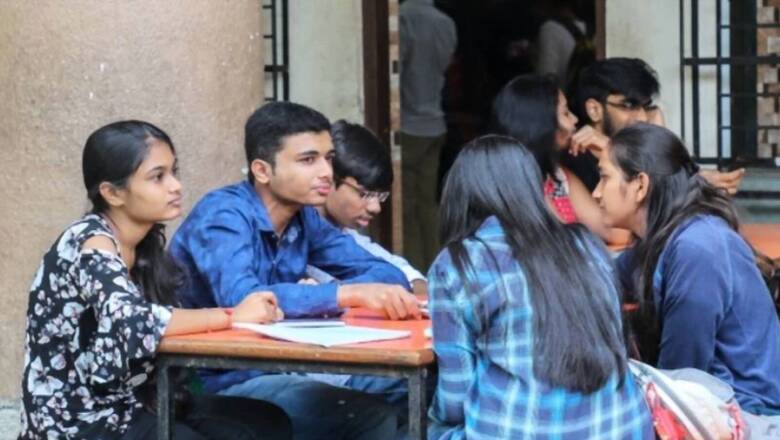
views
People spend a large portion of their lives preparing for these exams, and they may put in years of effort to clear them. A vast syllabus, a significant amount of competition and very low pass percentages make these exams appear even tougher. IAS official Awanish Sharan recently tweeted a list of the top 5 toughest tests in the world, and it appears that two of India’s most sought-after competitive exams are on this list.
The Joint Entrance Exam – Indian Institute of Technology (IIT JEE Exam) and the Union Public Service Commission – Civil Services Exam (UPSC-CSE) are known to be the toughest exams in India and have also been identified at an international level. While Awanish Saran has not credited any data behind the ranking, the list appears to be from Erudera’s report. Let’s have a look at this top 5 list:
Top 5 toughest exams in the World:1. Gaokao Exam – China2. IIT JEE Exam (Joint Entrance Exam – Indian Institute of Technology) – India3. UPSC Civil Services Exam (Union Public Service Commission) – India4. Mensa – England (found)5. GRE (Graduate Record Examination) – USA
— Awanish Sharan (@AwanishSharan) January 17, 2023
Gaokao Exam (China): Gaokao, also known as the National Higher Education Entrance Examination or National College Entrance Examination, is a yearly exam that high school students who want to enrol in undergraduate programmes in China must take. Less than 0.25 per cent of students who take the nine-hour Gaokao exam in their third and final year of high school achieve the required score for admission to some of China’s most prestigious institutions.
IIT JEE Exam (Joint Entrance Exam, Indian Institute of Technology): India
The National Testing Agency (NTA) in India conducts the IIT JEE engineering entrance test to evaluate candidates for undergraduate engineering programmes in prestigious IITs across the country. This exam takes, on average, two years of diligent preparation and assesses the candidate’s aptitude in mathematics, physics, and chemistry. Additionally, it evaluates their reasoning, analytical, and comprehensive abilities. IIT acceptance rates hover around 1%. The exam becomes one of the most difficult in the world when you take into account the extensive syllabus and the unpredictable nature of the questions.
UPSC Exam (Union Public Service Commission) India: The Indian Government holds the UPSC exams to fill positions in organisations such as the Indian Administrative Service (IAS), Indian Foreign Service (IFS), Indian Police Service (IPS), and other Central Services. Two general-topic objective papers make up the prelims, which are the first part of the test. The mains exam, which consists of seven papers, is attempted by those who qualified for the prelims. The pass percentage of the UPSC exams tends to range between 0.1 per cent to 0.4 per cent. Candidates get to the interview stage after passing the preliminary and main exams, where a panel will evaluate their personality, awareness, and reasoning.
Mensa – England: Internationally, Mensa is the largest and most established high IQ organisation that assesses candidates’ skills in areas like logic, reasoning, and problem-solving. This non-profit organisation administers the highly challenging test to create a society of people who score above the 98th percentile on supervised IQ tests. Any applicants who pass the Mensa test with a score that falls within the top 2 per cent of the entire population are admitted as members.
GRE (Graduate Record Examination) – United States: The GRE is a standardised exam that assesses a student’s general academic preparedness for graduate school. As a result, this exam is necessary for students who seek entry into multiple graduate programmes in the US, Canada, and a few other nations. The GRE is extremely difficult because of its reading and vocabulary requirements. To pass the sections, candidates must have strong deductive abilities.
Read all the Latest Education News here



















Comments
0 comment